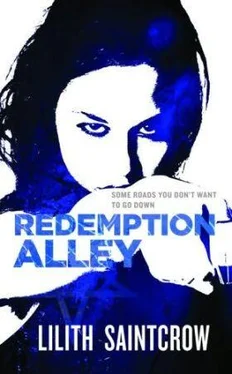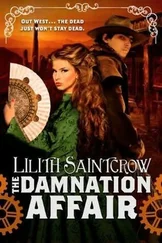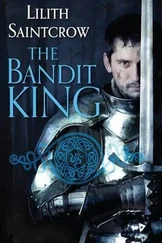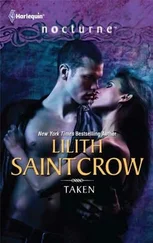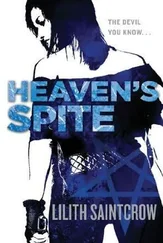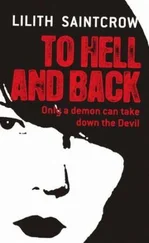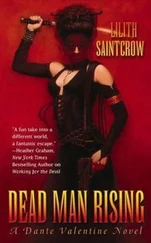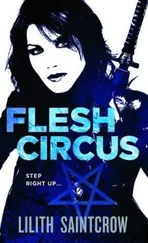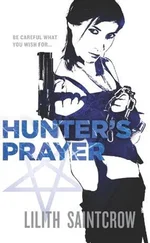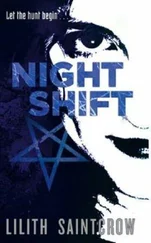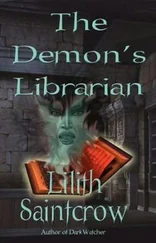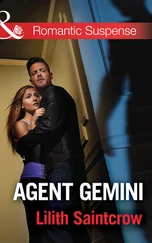“The scurf, and this.”
Jesus in a sidecar, I hope not. “I don’t know. I’m not assuming they are. There’s no visible connection.” But he knew as well as I did that I wasn’t ruling it out, either.
He digested this. “Something’s off. They were too old, and too many of them.”
Just what I’d been thinking. “I know. But a hellbreed, busting in on a scurf nest…” There’s one small note off here, and it’s throwing the entire orchestra out of whack. “If this gets much deeper I’m going to have to do something drastic.”
“Huh.” He visibly restrained himself from making a smartass comment. “Like what?”
“Like something unsafe.”
“More unsafe than the barrio?”
Visiting Perry makes the barrio look like a cakewalk, Were. “Much, Theron. Now shut up, I need to think.”
“ I’ll say you do.”
I let it go. A Were sometimes needs the last word. It makes them feel better.
S anta Luz’s barrio isn’t a shantytown, though it has a forest of shacks on the edge between “suburb” and “desert” where even the Weres go in pairs when they have to run through. There is the Plaza Centro, which used to be a railroad station but is now a mercado with a giant mezzanine, the center of the barrio’s seethe. There are bodegas on every corner, and Catholic or Pentecostal churches sprinkled throughout, sometimes even in abandoned storefronts.
The rest of the barrio is quiet, watchful streets. Violence occurs pretty rarely in most of its sprawl, but it’s always a breath away. The feeling is like a storm hanging overhead, ready to toss thunderbolts at the slightest provocation. A crackling edge of expectation blurs the air, and your entire skin turns into a sensitive canvas, ready to catch any breath, any faint tingle that might warn you a half-second before a bullet punches through your meat.
The 51s run in the south part of the barrio, in a wedge-shaped territory with its thin end pointing at the Plaza Centro and the wider, trailing hind end spreading almost halfway through the closest slice of shackville—what bigots in my fair city mostly call Cholo Central or, in slightly more politically correct terms, “that goddamn sinkhole.”
I surveyed the pockmarked sloping street. Ranchero music blared from the bodega on the corner, cholos lounged on every front porch. Two driveways down, a vintage orange Nova was up on blocks with someone’s head under the hood, two men in flannel shirts with only the top button buttoned offering advice while clutching cold bottles of Corona. Frijoles and sweat, beer and cumin, chili sauce and hot burning wax from novenas all mixed together, with the tang of poverty underneath—a bald edge of desperation, marijuana fumes, and old food.
Theron slammed his door. Down here he looked normal—the darker tone of his skin and the strangeness of his bone structure became mestizo instead of just-plain-brown-person. “You sure you want to do this?”
I shrugged. “I go where I have to. Why don’t you put that nose of yours to good use and find me a 51?”
“This whole street is theirs, hunter. But we’re going to see Ramon.”
“Head honcho?” I didn’t ask how he knew all this—he was a Were; this was his part of town. Most Weres in Santa Luz live either on the fringe of the barrio or in a narrow corridor between it and Mayfair Hill where the houses have been in the same families, packs, and prides for generations.
“Lieutenant. He’ll give you a safe-conduct if you act nice and polite. Let me do the talking.”
“I wouldn’t have it any other way.” I slid my shades on, silver chiming in my hair. The sensation of eyes on me was palpable, my hackles rising and the scar prickling with dense wet heat. Almost-living heat, like a flower opening under sunlight.
It’s not growing. Don’t even think about that.
Instead, I thought about the black-market trade in organs. I would have to meet up with Sullivan and the Badger if I had time, and if I could do it without endangering them. I thought about why a hellbreed would burst in on a scurf nest in the middle of a fight, and the thing that occurred to me was so plain and simple I stopped in my tracks for a good five seconds.
“Jill?” Theron looked over his shoulder. Morning sunlight touched off a furnace of highlights in his dark hair. “Everything copacetic?”
“Scurf don’t attack hellbreed. Their ichor doesn’t carry any hemoglobin or the right proteins for the viral agents.”
He didn’t think my revelation was worth the name. “No shit.”
I suddenly wished for Saul. He would have understood the way my thoughts were wending. “Which means someone might have laid the scurf like bait in a trap. A nightsider who’s not only able to handle them, but who knows I’d go after them with Weres.”
“Yeah?” Theron folded his arms. Time’s a-wasting, his body language said.
“So someone is probably profiting from the scurf. Nobody would want to kill me in the middle of a scurf hole just because I’m annoying. Someone is making some money, and there could be a connection to this other case. Profit’s a strong incentive. And what makes scurf so dangerous?”
“They’re contagious,” he said, flatly. But his head tilted a little, listening instead of dismissing.
“ And cannibalistic. What better way to get rid of bodies?” I hated to assume these two cases were linked, but it wasn’t out of the ballpark. And part of not assuming, as every hunter is trained to realize, is also not ruling out the possible. “Murder attempts from nightsiders and normals when I’m working a nightside and a normal case means they could very well be connected.”
“It’s a lot of assuming.” Theron scratched at his temple, thinking. His dark eyes had gone distant.
“If a better idea comes along, I’ll latch onto it.” I fell into step beside him as he set off again, heading for a ratty adobe house sandwiched between a gas station and a ramshackle tenement taking up most of a block. Its sliver of lawn was weedy but neat, and the sidewalk in front of the chain-link gate had been freshly swept and sprinkled with Florida water, if the ghost of orange perfume in the air was any indication.
Interesting. But of course, down in the barrio you find all sorts of… interesting… things.
Theron opened the gate for me, and the feeling of being watched intensified. My hands itched to touch a gun butt, but I carefully kept them loose and easy. I know I look odd—wandering around in a black ankle-length leather trenchcoat in the middle of a Southwestern summery simmer isn’t the best way to appear harmless. Plus there was the silver in my long dark curling hair, throwing back darts of light. And the pale cast to my skin wasn’t guaranteed to blend me in either.
The porch creaked under my boots and Theron’s weight. He opened the screen door and knocked, and I heard stealthy little sounds inside the house, my ears pricking. All human.
The thought that I had my back to the street touched my nape with gooseflesh. It was too quiet, eerie-quiet, under the ranchero blast from up the street. The kind of deep silence right before a gunshot and screaming.
The door opened, and a young cholo with a fedora, a white dress shirt, red suspenders, and a pair of natty sharp-creased chinos eyed us. He had a face that could have come off a codex, it wouldn’t have looked out-of-place under a quetzal-feather headdress. Dark eyes met mine, flicked down my body, and dismissed me, moving over to Theron. “Eh, gato, que ondo? ”
Читать дальше
